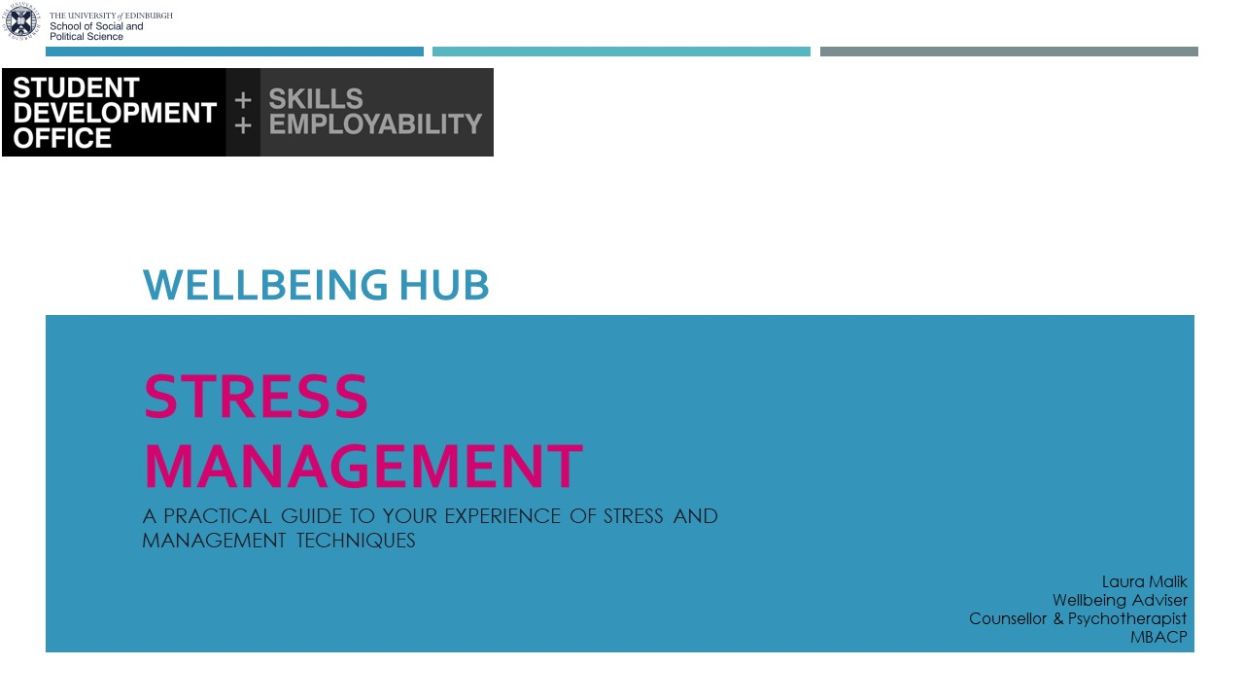Stress Management
Introduction
Here you can find a practical guide to your experience of stress and management techniques.
Content
Download PDF file here: Stress Management Slides
Please note if you need this file in a different format please contact: ssps.student-development@ed.ac.uk
Top Tips for Stress Management
- Understand your stress - stress occurs when the demands of a situation exceed our abilities/available resources to cope.
- Stress can originate from anywhere, and all stress (regardless of source) impacts us physiologically and emotionally.
- The stress response can be broken down into 3 distinct and unique outcomes: fight (act against the threat), flight (flee the scene), and freeze (immobilized and detached). Each benefits and drawbacks.
- Eustress (pronounced ‘you stress’) is a positive form of stress that improves performance. This effect is present until the amount of stress exhausts the available resources to cope – so short term stress like sitting an exam won’t typically cross into this area.
- Long-term, excessive stress results in fatigue/exhaustion and can even lead to disability and chronic health problems. Know the physical and mental signs!
- Review your coping strategies – are they helpful or unhelpful?
- Need better strategies? Use this analysis to identify what will work best for you
- Understand your stress – what are your stressors?
- Adopt a systematic problem solving approach by defining the problem and tackling it in small, achievable stages
- Recognise and accept your own feelings – expressing them to others can have many benefits!
- Behavioural skills such as assertiveness, time management, and using SMART goals can reduce the duration and frequency of stress.
- Upgrade your lifestyle – get more exercise, eat a healthier diet, engage socially, and take time to relax.
- Relaxation is a powerful tool in the short and long-term management of stress. Techniques like Diaphragmatic Breathing, Mindfulness, the Progressive Muscle Relaxation, and Guided Imagery can help calm you down in moments of distress and improve wellbeing when used regularly as self-care. Relaxation takes practice, so give yourself the time and space to do it effectively!
- Remember that stress is an innate part of our function as humans. It evolved to protect us from threats, but, when left unchecked, can cause a great deal of harm to our day-to-day living.
